 W
WSir Ralph Abercromby was a Scottish soldier and politician. He twice served as MP for Clackmannanshire, rose to the rank of lieutenant-general in the British Army, was appointed Governor of Trinidad, served as Commander-in-Chief, Ireland, and was noted for his services during the French Revolutionary Wars.
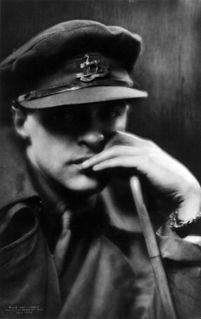 W
WCaptain Charles Bruce Bairnsfather was a prominent British humorist and cartoonist. His best-known cartoon character is Old Bill. Bill and his pals Bert and Alf featured in Bairnsfather's weekly "Fragments from France" cartoons published weekly in The Bystander magazine during the First World War.
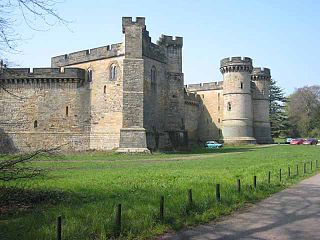 W
WSir Henry Belasyse, also spelt Bellasis, was an English military officer from County Durham, who also sat as MP for a number of constituencies between 1695 and 1715.
 W
WGeneral William Carr Beresford, 1st Viscount Beresford, 1st Marquis of Campo Maior, was an Anglo-Irish soldier and politician. A general in the British Army and a Marshal in the Portuguese Army, he fought alongside The Duke of Wellington in the Peninsular War and held the office of Master-General of the Ordnance in 1828 in Wellington's first ministry. He led the 1806 failed British invasion of Buenos Aires
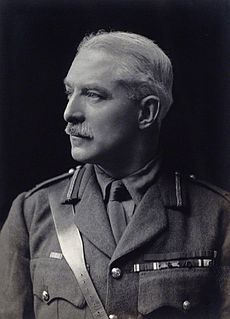 W
WBrigadier-General Sir George Kynaston Cockerill, was a British Army officer and a Conservative Party politician.
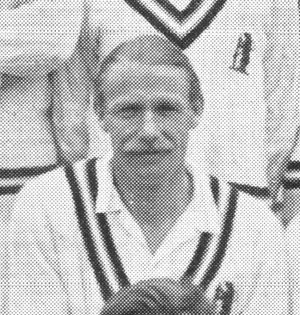 W
WPeter Cranmer was an English sportsman who captained Warwickshire in first-class cricket and earlier in his career represented England at rugby union. After World War II he gave up on rugby and focused purely on cricket.
 W
WGeorge Augustus Hamilton Chichester, 5th Marquess of Donegall was an Anglo-Irish soldier and company promoter who became an Irish and British peer, with a seat in the House of Lords.
 W
WJames Dormer (1679–1741) was a British Army officer, a lieutenant-general, and colonel of the 1st troop of Horse Grenadier Guards
 W
WSir Arthur Philip Du Cros, 1st Baronet was a British industrialist and politician.
 W
WWilbraham Tollemache, 6th Earl of Dysart FRS, known from 1739 to 1799 as Hon. Wilbraham Tollemache, was a British politician who sat in the House of Commons from 1771 to 1784.
 W
WWilliam Egerton (1684–1732) was a British Army officer and Whig politician who sat in the House of Commons almost continuously from 1706 to 1732.
 W
WLieutenant General John Henry Ford Elkington was a British Army officer who became Lieutenant Governor of Guernsey.
 W
WColonel William Whitson Etches, was a senior British Army officer. He served with the commandos during the Second World War, taking part in the raid on St Nazaire for which he won the Military Cross and was taken as a prisoner of war.
 W
WLieutenant General Sir Geoffrey Charles Evans was a senior British Army officer during World War II and the post-war era. He was highly regarded as both a staff and field officer and had the distinction of being awarded the Distinguished Service Order (DSO) on three separate occasions.
 W
WLieutenant General Arthur Nugent Floyer-Acland, was a senior officer of the British Army who served in both the First and Second World Wars. He was Military Secretary from 1940 to 1942. In later life, he was High Sheriff and Deputy Lieutenant of Dorset.
 W
WAir Vice-Marshal William Charles Coleman Gell, was an officer of the British Army and then of the Royal Air Force. He served as Air Officer Commanding-in-Chief at RAF Balloon Command from 1944 to 1945.
 W
WMajor Thomas Henry Gem, known as Harry Gem, was an English lawyer, soldier, writer and sportsman.
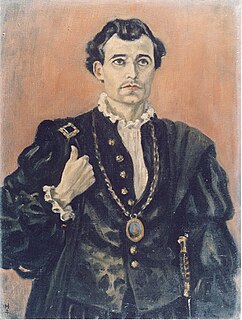 W
WLawrence Michael Andrew Goodliffe was an English actor known for playing suave roles such as doctors, lawyers and army officers. He was also sometimes cast in working class parts.
 W
WCharles Grey, 1st Earl Grey, served as a British general in the 18th century. A scion of the noble House of Grey, he was a distinguished soldier in a generation of exceptionally capable military and naval personnel, serving in the Seven Years' War (1756-1763) and taking part in the defeat of France.
 W
WCaptain Julian Royds Gribble VC was an English recipient of the Victoria Cross, the highest and most prestigious award for gallantry in the face of the enemy that can be awarded to British and Commonwealth forces.
 W
WDonald William Alers Hankey was an English soldier best known for two volumes of essays about the British volunteer army in World War I both titled A Student in Arms.
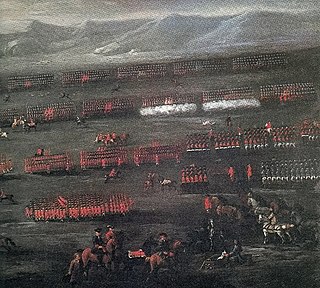 W
WThomas Harrison was a British Army officer and politician who sat in the House of Commons from 1728 to 1734.
 W
WBrigadier Philip Hugh Whitby Hicks was an officer of the British Army during both the First and Second World Wars.
 W
WBoyd Robert Horsbrugh was an English ornithologist and military man, best known for his 1912 book The Gamebirds and Waterfowl of South Africa, a collaborative work with Claude Gibney Finch-Davies.
 W
WCaptain George Hunt is credited as the founder of Huntsville, Ontario, Canada in the region of Muskoka. He was born in 1830 on the Isle of Corfu off the coast of Greece to British Army Officer Robert Hunt and his wife Margaret. In 1840, the Hunt family moved to Canada, settling in Montreal, Quebec.
 W
WSir Thomas Downing Kendrick was a British archaeologist and art historian.
 W
WLieutenant-General Sir Launcelot Edward Kiggell, was an Irish-born British Army officer who was Chief of General Staff for the British Armies in France under Sir Douglas Haig from late 1915 to 1918.
 W
WLieutenant-Colonel James Meldrum Knox DSO & bar was a British Army officer of the First World War. He commanded the 1st/7th battalion of the Royal Warwickshire Regiment from 1915 until his death in 1918 on the Italian Front, during the Battle of Asiago (1918).
 W
WMajor-General Herman James Shelley Landon,, , was a British Army officer. During the Boer War he commanded a battalion, and was promoted in the interwar period to take command of a brigade in the British Expeditionary Force. He commanded the brigade during the early fighting on the Western Front in the First World War, and succeeded to the command of 1st Infantry Division when his commanding officer was killed at the First Battle of Ypres; he later commanded four more New Army divisions during the war.
 W
WColonel Sir William Owen Lanyon KCMG CB was a British colonial administrator and British Army officer.
 W
WHenry Alan Leeke was a British track and field athlete who competed in the 1908 Summer Olympics.
 W
WLord Arthur Lennox was a British politician. He was the youngest son of the 4th Duke of Richmond and the uncle of Lord Henry Lennox.
 W
WSir John Scott Lillie was a decorated officer of the British Army and Portuguese Army who fought in the Peninsular War (1808–1814). He was a landowner, entrepreneur and inventor. He was Deputy Lieutenant of the County of Middlesex and Chairman of the Middlesex Quarter Sessions, a freemason, a radical politician and supporter of the great Irish statesman Daniel O'Connell. He was an early antivivisectionist and writer.
 W
WField Marshal George Charles Bingham, 3rd Earl of Lucan,, styled Lord Bingham before 1839, was an Anglo-Irish aristocrat and British Army officer. He was one of three men, along with Captain Nolan and Lord Raglan, responsible for the fateful order during the Battle of Balaclava in October 1854 that led to the Light Brigade commander, The Earl of Cardigan, leading the Charge of the Light Brigade. He was subsequently promoted to field marshal.
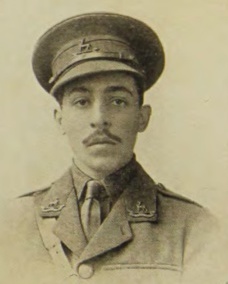 W
WEuan Lucie-Smith was a British Army second lieutenant of World War I, of mixed British and Afro-Caribbean descent.
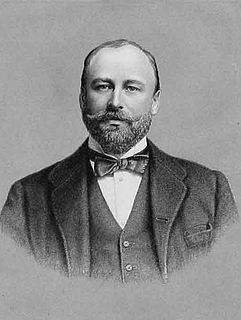 W
WColonel Harry Leslie Blundell McCalmont, CB was a British army officer, race-horse owner, yachtsman and Conservative party politician.
 W
WField Marshal Sir John Michel was a British Army officer. He commanded the 6th Regiment of Foot during the Eighth Xhosa War in 1851 and served as Chief of Staff of the British Army's Turkish contingent during the Crimean War in 1854 before transferring to India where he commanded the Malwa Field Force which pursued Tatya Tope in the aftermath of the Indian Mutiny. He then commanded the 1st Division at the Battle of Taku Forts in August 1860 during the Second Opium War and took part in the burning of the Old Summer Palace at Peking in October 1860 as a reprisal for the torture and murder of British prisoners before being appointed Commander of British Troops in China and Hong Kong in 1861. He later commanded the forces in British North America playing a key role in the organization of the militia volunteers in resistance to the Fenian raids invasions in 1866. His last appointment was as Commander-in-Chief of Ireland in 1875.
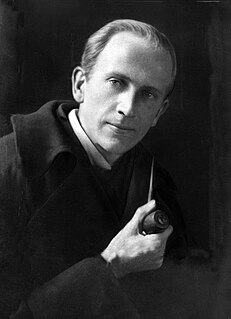 W
WAlan Alexander Milne was an English author, best known for his books about the teddy bear Winnie-the-Pooh and for various poems. Milne was a noted writer, primarily as a playwright, before the huge success of Pooh overshadowed all his previous work. Milne served in both World Wars, joining the British Army in World War I, and as a captain of the British Home Guard in World War II.
 W
WField Marshal Bernard Law Montgomery, 1st Viscount Montgomery of Alamein,, nicknamed "Monty" and "The Spartan General", was a senior British Army officer who served in the First World War, the Irish War of Independence and the Second World War.
 W
WLieutenant-General Sir Gerald De Courcy Morton was a British Army officer who became General Officer Commanding 7th Division.
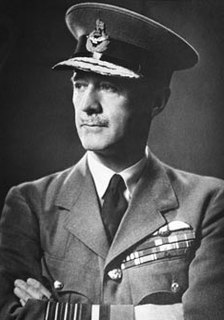 W
WMarshal of the Royal Air Force Cyril Louis Norton Newall, 1st Baron Newall, was a senior officer of the British Army and Royal Air Force. He commanded units of the Royal Flying Corps and Royal Air Force in the First World War, and served as Chief of the Air Staff during the first years of the Second World War. From 1941 to 1946 he was the Governor-General of New Zealand.
 W
WLieutenant General Sir Archibald Edward Nye was a senior British Army officer who served in both world wars. In the latter he served as Vice Chief of the Imperial General Staff (VCIGS).
 W
WGeorge Onions VC was an English recipient of the Victoria Cross, the highest and most prestigious award for gallantry in the face of the enemy that can be awarded to British and Commonwealth forces.
 W
WReginald Sherring Partridge,, generally known as Ralph Partridge, a member of the Bloomsbury Group, worked for Leonard Woolf and Virginia Woolf, married first Dora Carrington and then Frances Marshall, and was the unrequited love of Lytton Strachey.
 W
WPhilip Babington (1632–1690) was an English military officer, who served in the armies of the Commonwealth of England, the Dutch Republic and England. He accompanied William III to England in the 1688 Glorious Revolution and was Member of Parliament and Governor for Berwick-upon-Tweed from 1689–1690.
 W
WWilliam John Phillips MC was an English actor. He is known for the role of Chief Superintendent Robins in the television series Z-Cars and for his work as a Shakespearean stage actor.
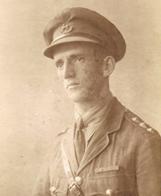 W
WRobert Edwin "Bob" Phillips VC was an English recipient of the Victoria Cross, the highest and most prestigious award for gallantry in the face of the enemy that can be awarded to British and Commonwealth forces.
 W
WBrigadier-General Herbert Cecil Potter, was a senior British military officer, 'Military Chief' of Belfast and Colonel Commandant of the 3rd Indian Infantry Brigade, Peshawar. A catalogue of Potter's papers described him as a 'quintessential member of the British officer class'.
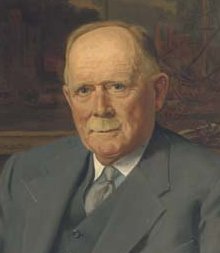 W
WLieutenant Colonel Walter Marlborough Pryor, DSO & Bar, DL, JP was a British soldier.
 W
WMajor-General Frank Crowther Roberts, was a British Army officer and an English recipient of the Victoria Cross, the highest award for gallantry in the face of the enemy that can be awarded to British and Commonwealth forces.
 W
WAir Marshal Sir Robert Henry Magnus Spencer Saundby, was a senior Royal Air Force officer whose career spanned both the First and Second World Wars. He distinguished himself by gaining five victories during the First World War, and was present during the air battle when Lanoe Hawker was shot down and killed by Manfred von Richthofen, the "Red Baron". He is chiefly remembered for his role as Deputy Air Officer Commanding-on-Chief Bomber Command under Sir Arthur Harris during the latter part of the Second World War.
 W
WSir Henry O'Neal de Hane Segrave was an early British pioneer in land speed and water speed records. Segrave, who set three land and one water record, was the first person to hold both titles simultaneously and the first person to travel at over 200 miles per hour (320 km/h) in a land vehicle. He died in an accident in 1930 shortly after setting a new world water speed record on Windermere in the Lake District, England. The Segrave Trophy was established to commemorate his life.
 W
WField Marshal William Joseph Slim, 1st Viscount Slim,, usually known as Bill Slim, was a British military commander and the 13th Governor-General of Australia.
 W
WLieutenant-Colonel Charles Hamilton Smith, KH, KW, FRS, FLS, was an English artist, naturalist, antiquary, illustrator, soldier, and spy.
 W
WGeneral Sir Robert Dundas Whigham, was a Scottish British Army officer and a former Adjutant-General to the Forces.
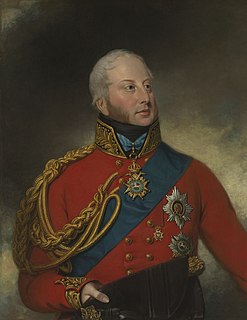 W
WPrince William Frederick, Duke of Gloucester and Edinburgh, was a great-grandson of King George II and nephew and son-in-law of King George III of the United Kingdom.
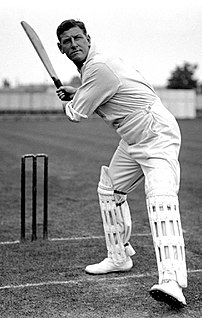 W
WSamuel Moses James Woods was an Australian sportsman who represented both Australia and England at Test cricket, and appeared thirteen times for England at rugby union, including five times as captain. He also played at county level in England at both soccer and hockey. At cricket—his primary sport—he played over four hundred first-class matches in a twenty-four-year career. The majority of these matches were for his county side, Somerset, whom he captained from 1894 to 1906. A. A. Thomson described him thus: "Sammy ... radiated such elemental force in hard hitting, fast bowling and electrical fielding that he might have been the forerunner of Sir Learie Constantine."